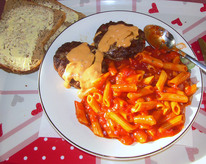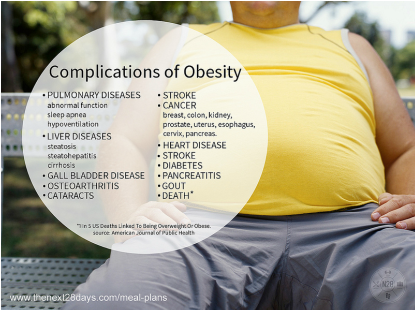EVOLVING CONCEPTS IN WEIGHT LOSS

As a medical student I was taught many "facts" which have since proven to be false. Among them was the "fact" that "a calorie is a calorie is a calorie". Which is to say that, if a body consumes more calories than required, irrespective of the source of those calories (i.e. fat, protein, or carbohydrate), that body will accumulate fat. We know now that this is not exactly true.
HOW DOES THE BODY USE CARBOHYDRATES?
The preferred energy source for the human body is glucose. Sugar. Other substances can be converted to energy, but not as efficiently. Glucose is readily obtained from all carbohydrate sources. These include most types of sugar (i.e. granulated sugar, fruit sugar (fructose), milk sugar (lactose) etc.) and all grains, root vegetables and other sources. Carbohydrate will not be wasted. Any excess is stored, first in the form of glycogen in liver and muscle cells, and then as fat.
The storage capacity for glycogen in liver and muscle is fixed and only enough to last a few days. The fat "tank", on the other hand, is remarkable in that its capacity to expand is almost limitless. The fat cell is called an adipocyte. Its precursor is called a pre-adipocyte. Pre-adipocytes have the ability to multiply and make more fat cells. When the fat cells are full, pre-adipocytes multiply and make more. So the storage facility continues to enlarge. In order for storage to occur, the hormone insulin must be present. In general, the more insulin present, the greater the amount of storage (fat).
The storage capacity for glycogen in liver and muscle is fixed and only enough to last a few days. The fat "tank", on the other hand, is remarkable in that its capacity to expand is almost limitless. The fat cell is called an adipocyte. Its precursor is called a pre-adipocyte. Pre-adipocytes have the ability to multiply and make more fat cells. When the fat cells are full, pre-adipocytes multiply and make more. So the storage facility continues to enlarge. In order for storage to occur, the hormone insulin must be present. In general, the more insulin present, the greater the amount of storage (fat).
WHY IS OBESITY SO PREVALENT IN OUR SOCIETY?

For most of humankind's evolutionary history, the ability to store fat conferred a survival benefit during periods of famine. In modern times, however, with the availability of carbohydrate dense food 24/7, 365 days a year, this benefit is lost. Instead, it has created the so called "obesity epidemic" with all its associated medical conditions, morbidity and mortality.
Limiting the carbohydrate intake to below the individual's daily energy requirements forces the body to use its energy stores. First the glycogen in liver and muscle is used. This lasts only a few days. Less if the individual exercises. When the glycogen is used up, fat stores are utilized. Fat will continue to be burned 24/7 as long as the carbohydrate intake is below daily requirements.
Limiting the carbohydrate intake to below the individual's daily energy requirements forces the body to use its energy stores. First the glycogen in liver and muscle is used. This lasts only a few days. Less if the individual exercises. When the glycogen is used up, fat stores are utilized. Fat will continue to be burned 24/7 as long as the carbohydrate intake is below daily requirements.
Replacing the carbohydrate with non carbohydrate food does not significantly affect the fat loss. Animal fat, saturated fat (bad fat) intake is discouraged since it can adversely affect lipid levels, insulin sensitivity and cause other problems. Intake of "good fats" such as omega-3, omega-6 and olive oil, in moderate amounts is beneficial.
Protein intake does not result in blood sugar elevation or accumulation of fat. If an individual alters their diet in such a manner that carbohydrate is reduced to below daily requirements and replaced by pure protein, weight (fat) loss will occur. This is true even if the total calories in the protein is greater than the carbohydrate calories would have been. It appears, therefore, that when it comes to how the human body utilizes energy sources, a calorie does NOT equal a calorie.
Protein intake does not result in blood sugar elevation or accumulation of fat. If an individual alters their diet in such a manner that carbohydrate is reduced to below daily requirements and replaced by pure protein, weight (fat) loss will occur. This is true even if the total calories in the protein is greater than the carbohydrate calories would have been. It appears, therefore, that when it comes to how the human body utilizes energy sources, a calorie does NOT equal a calorie.
Which diet, and is it safe?

There are many low carbohydrate diets on the market. Each has its own biases, but carbohydrate reduction is key in all of them.
No diet should be undertaken unless your physician approves and monitors it. All diets, including low carbohydrate diets can be dangerous if an individual has certain medical conditions. For example, a low carbohydrate diet may be dangerous for diabetics on oral medication and/or insulin. It would require very close monitoring by a physician, and may be totally inappropriate in some cases. Other medical conditions must also be excluded before an individual is started on a low carbohydrate or any other type of diet.
No diet should be undertaken unless your physician approves and monitors it. All diets, including low carbohydrate diets can be dangerous if an individual has certain medical conditions. For example, a low carbohydrate diet may be dangerous for diabetics on oral medication and/or insulin. It would require very close monitoring by a physician, and may be totally inappropriate in some cases. Other medical conditions must also be excluded before an individual is started on a low carbohydrate or any other type of diet.
Stay well. Stay safe.
Armando
E. A. Mastrangelo M.D. CAME, AME
Armando
E. A. Mastrangelo M.D. CAME, AME
 RSS Feed
RSS Feed